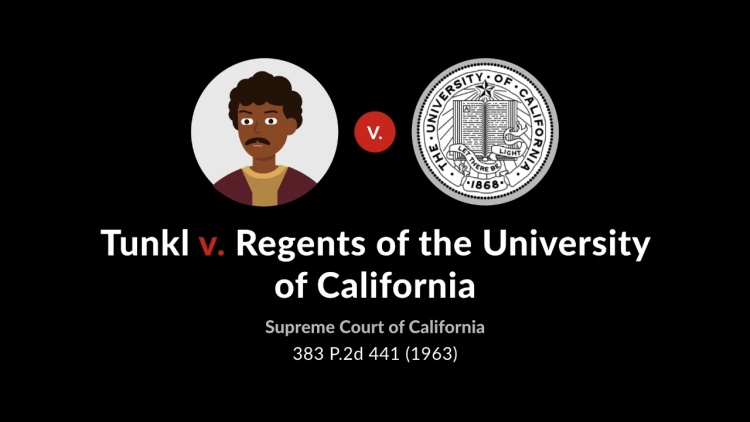Tunkl v. Regents of the University of California
Supreme Court of California
383 P.2d 441 (1963)
- Written by Craig Conway, LLM
Facts
Hugo Tunkl (plaintiff) was selected to participate in a research project conducted by the University of California at Los Angeles Medical Center (Medical Center), a charitable hospital operated and maintained by the Regents of the University of California (Regents) (defendant). Upon admission, Tunkl signed a “conditions of admission” document including an exculpatory clause stating that he would release the Regents from any liability resulting from the negligent or wrongful acts or omissions of its employees if the Medical Center had used due care in hiring the employees. At the time of signing the document, Tunkl was in great pain, under sedation, and likely unable to read the document. Tunkl brought suit to recover damages for personal injuries he sustained from the negligence of two physicians employed at the Medical Center. Prior to trial, Tunkl died and his wife, as executrix of his estate, was substituted as plaintiff. Tunkl stipulated that the physician employees of the Medical Center had been selected with due care. The trial court submitted the issue regarding the validity of the exculpatory clause to the jury. If the jury found that the clause did not bar Tunkl’s suit from proceeding, a second jury would try the issue of the alleged malpractice. The first jury returned a verdict sustaining the validity of the executed release and the court entered judgment in favor of the Regents. Tunkl appealed the court’s judgment.
Rule of Law
Issue
Holding and Reasoning (Tobriner, J.)
What to do next…
Here's why 907,000 law students have relied on our case briefs:
- Written by law professors and practitioners, not other law students. 47,100 briefs, keyed to 996 casebooks. Top-notch customer support.
- The right amount of information, includes the facts, issues, rule of law, holding and reasoning, and any concurrences and dissents.
- Access in your classes, works on your mobile and tablet. Massive library of related video lessons and high quality multiple-choice questions.
- Easy to use, uniform format for every case brief. Written in plain English, not in legalese. Our briefs summarize and simplify; they don’t just repeat the court’s language.





